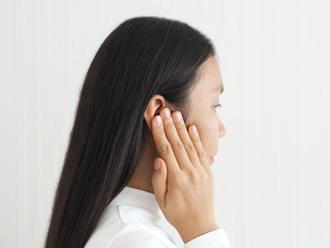
Cholesteatoma might sound like a scary illness, and although it is a serious condition, it is treatable by your local ENT. If you’re suffering from reoccurring ear problems, mention Cholesteatoma to your ENT at your next appointment.
What is Cholesteatoma?
Cholesteatoma occurs when a large collection of skin cells occur deep within the ear. This growth of skin is where cholesteatoma gets its name, toma being the word for swelling or tumor. Fortunately, cholesteatoma presents as a non-cancerous cyst.
Cholesteatoma can be either genetic, known as congenital cholesteatoma, or develop later in life, known as acquired cholesteatoma. Both are caused by keratinizing cells in the temporal bone. Abnormal growths usually present in the middle ear behind the eardrum.
Signs and Symptoms
A cholesteatoma usually only affects one ear.
It can cause symptoms including:
- Fluid drainage in the ear
- Foul-smelling drainage
- Feeling pressure or fullness in the ear
- Hearing loss
- Dizziness or vertigo
- Pain
- Numbness or weakness on one side of the face
Risk Factors
Developing congenital cholesteatoma is incredibly rare. However, it is possible to acquire it in adulthood.
Some of the risk factors of developing cholesteatoma include:
- Re-occurring middle ear infections
- Poor eustachian tube function
- Genetics
- Being of Caucasian descent (incidence is rarest in Indian Asians)
- Being born with craniofacial syndromes such as cleft lip
How Is It Diagnosed?
A doctor will take a look inside your ear using an otoscope to determine if you have cholesteatoma. They can see the cholesteatoma, which often looks like a cyst made of skin cells or a mass of blood vessels.
If the cholesteatoma is too small to be detected, a CT scan may be ordered.
What are the Treatment Options?
Treatment for cholesteatoma often involves surgery for severe cases. However, if caught early, it can be treated through a round of antibiotics, ear drops, and cleaning your ear carefully.
The goal of the treatment is to reduce the chances of an infection occurring, reduce inflammation, and drain the ear of the cyst.
What If It Goes Untreated?
Surgery is perhaps the best way to treat cholesteatomas that won't go away, which is, unfortunately, quite common. Cholesteatomas tend to grow bigger and can eventually lead to:
- Destruction of surrounding tissues and bones
- Permanent facial nerve damage, including numbness
- Severe infections such as meningitis (although rare)
- Chronic ear infections
- Swelling of the inner ear
Because of the severe side effects cholesteatoma might have, it's important for people to get checked out by a doctor should they have any symptoms or risk factors.
